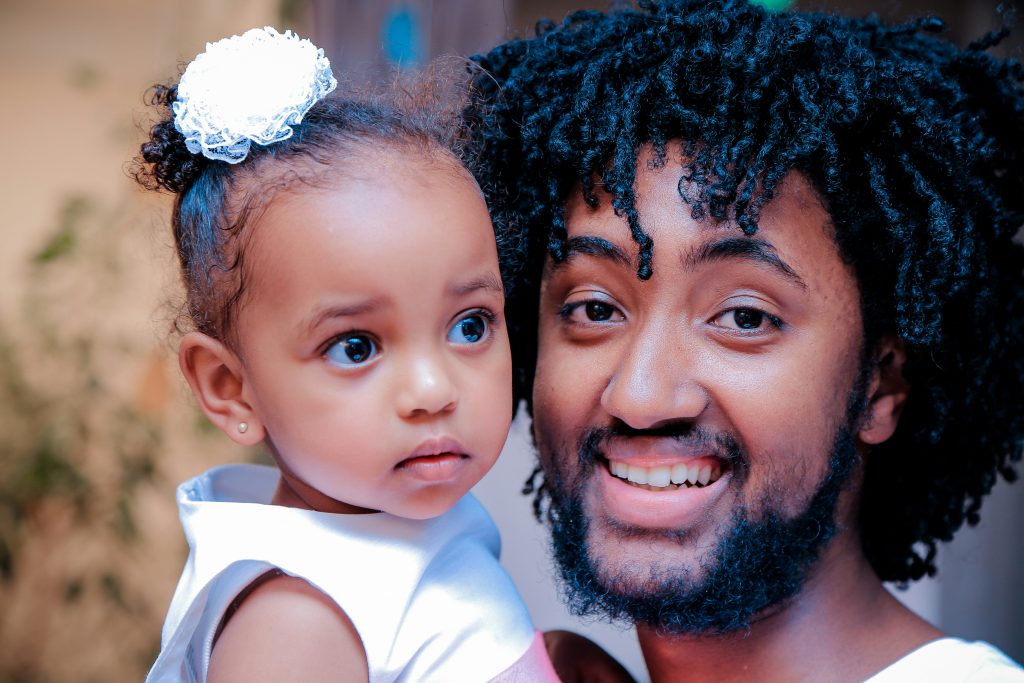[ad_1]
It’s common information that oldsters – together with their feelings, parenting kinds, and extra – have an affect on their kids. Analysis has highlighted quite a few essential mechanisms concerning the kind and magnitude of affect mother and father can have on their offspring, together with findings that offspring of fogeys with psychological well being problems are at better danger of psychological sickness themselves (McLaughlin et al., 2012). Nonetheless, traditionally, the connection between fathers’ psychological well being and that of their kids has acquired far much less consideration than the affect of maternal psychological well being, a phenomenon that’s possible as a consequence of gender norms whereby girls are assumed to be the first caregivers.
In acknowledgement of the rising significance of the paternal position in caregiving and the rising range of household constructions, there’s a growing physique of analysis centered on the affect of paternal psychological well being on offspring outcomes. This consists of analysis anxiousness, which is among the commonest psychological well being problems with a prevalence of two.2%-3.8% in males (World Well being Group, 2017). Paternal anxiousness has been proven to be related to quite a lot of psychological well being outcomes of their offspring, together with internalizing issues (Connell & Goodman, 2002) and anxiousness (Ahmadzadeh et al., 2019).
Nonetheless, there has but to be a complete systematic evaluate and meta-analysis which synthesises this physique of labor, which is a spot that Zecchinato and colleagues (2024) aimed to handle.

There may be rising proof for a relationship between fathers’ anxiousness and the psychological well being of their offspring.
Strategies
The research was pre-registered through PROSPERO and adopted the standardised PRISMA pointers for conducting systematic evaluations and meta-analyses.
The authors searched 4 databases for printed research, in addition to two additional databases for gray literature. Research have been included in the event that they have been quantitative, measured father’s anxiousness through self-report or diagnostic interview, and measured emotional and/or behavioural outcomes within the father’s offspring.
After screening, information was extracted, and correlation coefficients have been pooled in random-effects meta-analyses. Research high quality was assessed utilizing the Newcastle Ottawa Scale and 25% of research have been double-rated. Research high quality was usually excessive, with a median rating of 0.68 (after conversion to a 0-1 scale, undertaken by weblog writer). A meta-regression was additionally performed utilizing variables together with age and intercourse of offspring, evaluation sort, and placement.
To account for the nested construction of the info (i.e., a number of impact sizes reported per research, a number of research drawn from the identical pattern), the authors employed multilevel mannequin methods.
Outcomes
Though 155 eligible papers have been recognized, 57 didn’t have the info obtainable to be meta-analysed. Therefore, 98 research have been included on this meta-analysis, drawn from 83 samples, and representing 322 impact sizes and 54,998 contributors.
Meta-analyses of the associations between paternal anxiousness and 5 consequence measure teams (hereafter known as ‘teams’) have been performed:
- Emotional and behavioural: Utilizing information from 83 samples, offspring emotional and behavioural issues have been considerably related to paternal anxiousness (r = 0.16, 95% CI [0.13 to 0.19], p < .001).
- Behavioural: Utilizing information from 27 samples, offspring despair issues have been considerably related to paternal anxiousness (r = 0.19, 95% CI [0.13 to 0.24], p < .001).
- Emotional: Utilizing information from 71 samples, offspring behavioural issues have been considerably related to paternal anxiousness (r = 0.15, 95% CI [0.12 to 0.18], p < .001).
- Anxiousness: Utilizing information from 52 samples, offspring behavioural issues was considerably related to paternal anxiousness (r = 0.13, 95% CI [0.11 to 0.16], p < .001).
- Despair: Utilizing information from 13 samples, offspring behavioural issues have been considerably related to paternal anxiousness (r = 0.13, 95% CI [0.03 to 0.23], p = .01).
The meta-analyses have been sturdy to sensitivity analyses, apart from the affiliation between paternal anxiousness and offspring despair consequence measures, which grew to become non-significant after excluding one research with particularly massive impact sizes which drew from the COVID-19 Pandemic Adjustment Survey (CPAS) pattern (Westrupp et al., 2023).
A number of moderating variables have been discovered to be vital, together with:
- Bigger results from Australian research for the emotional and behavioural group and bigger results from Asia within the behavioural group.
- Bigger results for self-report questionnaires and smaller results for diagnostic interviews within the emotional and behavioural, emotional, and anxiousness teams.
- Bigger results for father-rated than parent-rated offspring consequence measures for emotional and behavioural, emotional, and anxiousness teams.
It’s value noting that it was not doable to carry out all moderator analyses throughout all consequence measures, as not all research measured all moderator variables analysed right here. Particularly, it was not doable to conduct the vast majority of moderator analyses for despair, as there have been too few research.

Throughout 98 research of 83 completely different samples, this meta-analysis discovered that paternal anxiousness was related to quite a lot of emotional and behavioural outcomes of their offspring.
Conclusions
Anxiousness in fathers was related to quite a lot of unfavorable emotional and behavioural outcomes of their offspring; therefore, paternal anxiousness appears to not solely be related to offspring anxiousness, however with a spread of psychological well being outcomes. The authors relate this discovering to the ideas of multifinality and pleiotropy, whereby the identical surroundings and the identical gene, respectively, can result in a number of outcomes.
The strategies for analysing outcomes (i.e., who rated the end result and the way) have been notably impactful moderators of this relationship, though the authors observe the potential affect of variability in statistical energy throughout research. The authors spotlight that these findings are largely in step with earlier literature on paternal anxiousness and offspring outcomes (Trepiak et al., 2023), with impact sizes similar to these of maternal anxiousness (Connell & Goodman, 2002).

The impact of paternal anxiousness on offspring outcomes is similar to the magnitude of maternal anxiousness, indicating the same affect.
Strengths and limitations
Strengths
- Utilizing multilevel fashions for the meta-analysis allowed for a extra sturdy estimation of the pooled impact dimension, because it accounted for a number of impact sizes per research and overlapping samples. This strategy additionally diminished the chance of inflated false positives (Kind I errors) and distorted outcomes.
- The authors have been in a position to consider the affect of quite a lot of probably essential moderating variables, together with organic relation and placement of research, permitting them to evaluate the extent to which the noticed results have been attributable to paternal anxiousness or these different elements.
- The research was pre-registered and employed a standardised methodology of conducting meta-analysis (PRISMA), which implies they performed their evaluation in alignment with their unique plans and with PRISMA, thus rising the transparency and rigour of the evaluation.
- The inclusion standards had no limitation on publication language and included research from the Nineties to the current day, resulting in a radical evaluate of present literature. This will increase the generalisability of the research findings, and in addition reduces the chance of a language bias.
Limitations
- Together with each cross-sectional and longitudinal research makes it tougher to attract conclusions concerning the directionality of the connection between paternal anxiousness and offspring psychological well being. Nonetheless, the authors do keep away from making any inferences about causality, and research sort (longitudinal vs. cross-sectional) was not discovered to be a major moderator variable within the analyses.
- Some probably essential moderating variables couldn’t be investigated as a consequence of lack of obtainable information. Furthermore, it was not doable to research the potential confounding affect of some mediating variables recognized to affect the connection between parental and offspring psychological well being (e.g., socioeconomic standing; Oliver-Parra et al., 2020), as not all research reported unadjusted and adjusted coefficients. Whereas the authors acknowledge this limitation, it might nonetheless have been informative for adjusted coefficients of mediating variables to be reported within the abstract desk the place obtainable, and/or for moderators and mediators to be analysed in a story synthesis.

Extra analysis and additional meta-analyses are wanted to grasp the possibly mediating position of variables on the connection between fathers’ anxiousness and psychological well being of their offspring, equivalent to socio-economic standing.
Implications for apply
This analysis provides sturdy meta-analytic assist to the evidence-base for the connection between fathers’ anxiousness and the psychological well being of their offspring. Clinicians and social care professionals working with kids ought to take into account assessing fathers’ psychological well being (the place doable) as a part of their evaluation of a kid’s background, as it’s prone to have influenced their baby(ren) and will present essential context. The moderating impact of evaluation sort and informant on outcomes also needs to be thought of, because it signifies that each researchers and scientific professionals must be utilizing quite a lot of strategies to acquire probably the most complete image of paternal anxiousness. In flip, rising evaluation of paternal psychological well being ought to make clear how household intervention programmes can extra successfully assess and deal with psychological well being issues in younger individuals, as highlighted in a current editorial on this paper (Strawn & Peris, 2024).
The outcomes from the analyses of moderator variables even have sensible implications. Because the included research comprised information from offspring from 10 months previous to 328 months (i.e., over 27 years). ), the shortage of a moderating impact of age signifies that paternal anxiousness could affect offspring throughout the lifespan. Moreover, the shortage of a moderating impact of organic relation underscores the affect of fathers’ anxiousness through environmental mechanisms, as the principle results have been seen at comparable ranges throughout each fathers genetically associated and never genetically associated to their offspring.
Extra broadly, the authors spotlight the necessity for fellow researchers to develop past the “Eurocentric, heteronormative, and nuclear household” context of the vast majority of the analysis analysed right here. This remark acknowledges not solely the shortage of range when it comes to location and household construction of the included research, but additionally a extra overarching cultural framework of how parental affect is known. This underscores the necessity for additional analysis on the connection between the psychological well being of fogeys and their kids throughout all cultures, genders, and household constructions.

Professionals working with kids and households ought to attempt to assess fathers’ psychological well being as an essential a part of the kid’s background, because it may present useful perception for intervention.
Assertion of pursuits
No conflicts of curiosity to declare.
Acknowledgements
I want to thank Dr. Alice Wickersham for her incisive assist in making ready this weblog.
Hyperlinks
Major paper
Zecchinato, F., Ahmadzadeh, Y. I., Kreppner, J. M., & Lawrence, P. J. (2024). A Systematic Review and Meta-Analysis: Paternal Anxiety and the Emotional and Behavioral Outcomes in Their Offspring. Journal of the American Academy of Little one & Adolescent Psychiatry.
Different references
Ahmadzadeh, Y. I., Schoeler, T., Han, M., Pingault, J. B., Creswell, C., & McAdams, T. A. (2021). Systematic review and meta-analysis of genetically informed research: associations between parent anxiety and offspring internalizing problems. Journal of the American Academy of Little one & Adolescent Psychiatry, 60(7), 823-840.
Connell, A. M., & Goodman, S. H. (2002). The association between psychopathology in fathers versus mothers and children’s internalizing and externalizing behavior problems: a meta-analysis. Psychological Bulletin, 128(5), 746.
World Well being Group (2017). Despair and Different Frequent Psychological Problems: World Well being Estimates. https://iris.who.int/bitstream/handle/10665/254610/w?sequence=1
McLaughlin, Okay. A., Gadermann, A. M., Hwang, I., Sampson, N. A., Al-Hamzawi, A., Andrade, L. H., … & Kessler, R. C. (2012). Parent psychopathology and offspring mental disorders: results from the WHO World Mental Health Surveys. The British Journal of Psychiatry, 200(4), 290-299.
Oliver-Parra, A., Dalmau-Bueno, A., Ruiz-Muñoz, D., & García-Altés, A. (2020). Relationship between parents’ mental disorders and socioeconomic status and offspring’s psychopathology: a cross-sectional study. PLoS One, 15(10), e0240681.
Strawn, J. R., & Peris, T. S. (2024). Paternal Anxiety and Children’s Anxiety and Related Symptoms: An Overlooked Risk Factor. Journal of the American Academy of Little one & Adolescent Psychiatry.
Trepiak, P., Trepiak, T., Guérin-Marion, C., Kristen, A., & Deneault, A. A. (2023). A systematic review and meta-analysis of the associations between father and child anxiety and depression. Psychology of Males & Masculinities, 24(4), 325.
Westrupp, E. M., Bennett, C., Berkowitz, T., Youssef, G. J., Toumbourou, J. W., Tucker, R., … & Sciberras, E. (2023). Child, parent, and family mental health and functioning in Australia during COVID-19: comparison to pre-pandemic data. European Little one & Adolescent Psychiatry, 32(2), 317-330.
Photograph credit
[ad_2]
Source link

